Using this list of gut health books to learn about your microbioime
Having a holistic, natural view of the microbial universe around us is essential. Microorganisms are not only responsible for human gut health. They are also the reason our planet is habitable, they keep our soils enriched and thriving, and they are the reason we have food to eat and air to breathe. To fully understand gut health, I think it is essential to understand how microorganisms function and thrive in every area of life. I’ve included books that focus on the human microbiome and books that teach a holistic perspective of microorganisms in this book list.
We must try to understand how microorganisms shape every part of the world around us. The health of the microbial communities in our soils, water, air, and foods directly impacts us and our microbiome health.
Here is a list of our top 8 books about the gut (click to jump directly to the them):
- The Human Super Organism
- The Probiotic Cure
- 10% Human
- The Mind-Gut Connection
- The Hidden Half of Nature
- March of the Microbes
- Kiss the Ground
- Cooked
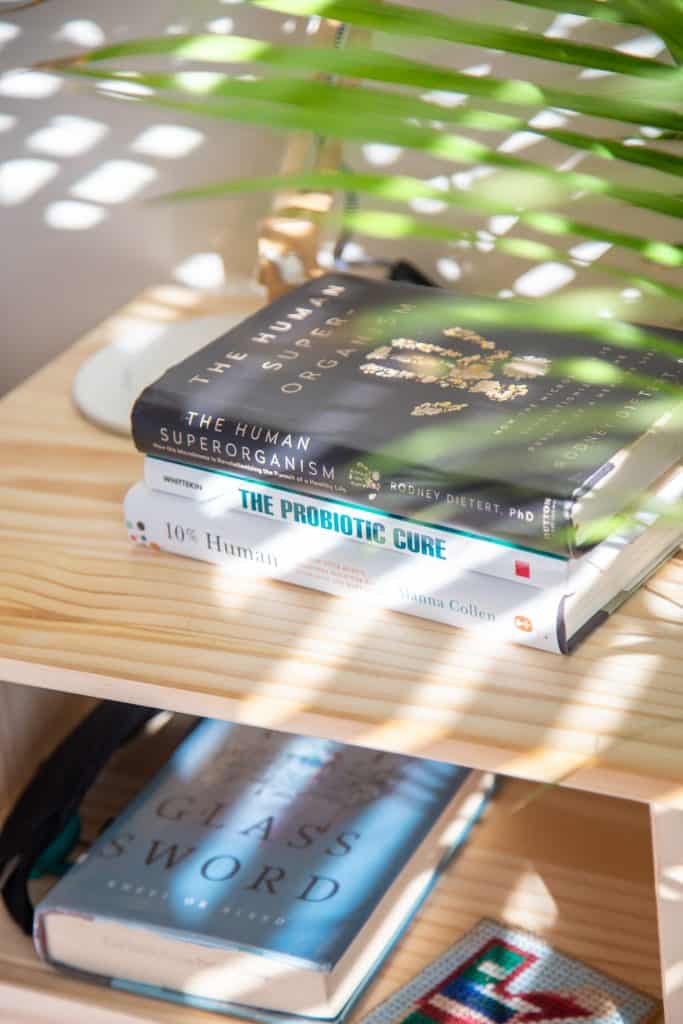

The Best Books on Gut Health
1. The Human Super Organism
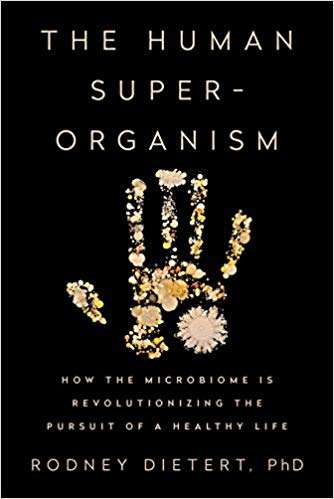
This book is one of my FAVORITES. It will help you understand your gut microbiome health better. One of my favorite quotes from the book is, “It might be more accurate to say, if we were built as anything, we are microbial storage machines designed to pass our microbes along to future generations.” This book is instrumental if you suffer from NCD (non-communicable disease).
The book’s last chapter also includes information on fermented foods for gut microbiome health.
The Author, Rodney Dietert, is a professor of immunotoxicology at Cornell. He has a Ph.D. in immunogenetics from UT Austin. So, he’s a credible author.
2. The Probiotic Cure

“The Probiotic Cure is a guide to overcoming many of our most common health issues. What our internal flora is and how it works in our gut is explained in Part One. This book examines what comprises this living community, specifically focusing on the natural balance of bad and good bacteria. It details how this community can become unbalanced from a poor diet, a toxic environment, or a number of medications, causing negative consequences for your health. It then goes on to explain how balance can be restored safely and effectively.”
3. 10% Human

“Until recently, we had thought our microbes hardly mattered, but science is revealing a different story. Microbes run our bodies; remaining a healthy human is impossible without them.
In this riveting, shocking, and beautifully written book, biologist Alanna Collen draws on the latest scientific research to show how our personal colony of microbes influences our weight, immune system, mental health, and even our choice of partner. She argues that so many of our modern diseases—obesity, autism, mental illness, digestive disorders, allergies, autoimmune afflictions, and even cancer—have their root in our failure to cherish our most fundamental and enduring relationship: that with our individual colony of microbes. The good news is that unlike our human cells, we can change our microbes for the better. Life—and your body—will never seem the same again.”
4. The Mind-Gut Connection

The Mind-Gut Connection is one of my favorite books on gut health. In this book, you learn how the human gut microbiome impacts your mood, choices, and overall health.
“We have all experienced the connection between our mind and our gut—the decision we made because it ‘felt right’; the butterflies in our stomach before a big meeting; the anxious stomach rumbling when we’re stressed out. While the dialogue between the gut and the brain has been recognized by ancient healing traditions, including Ayurvedic and Chinese medicine, Western medicine has failed to appreciate the complexity of how the brain, gut, and, more recently, the microbiome—the microorganisms that live inside us—communicate with one another. In The Mind-Gut Connection, Dr. Emeran Mayer, executive director of the UCLA Center for Neurobiology of Stress, offers a revolutionary look at this developing science, teaching us how to harness the power of the mind-gut connection to take charge of our health.”
5. The Hidden Half of Nature
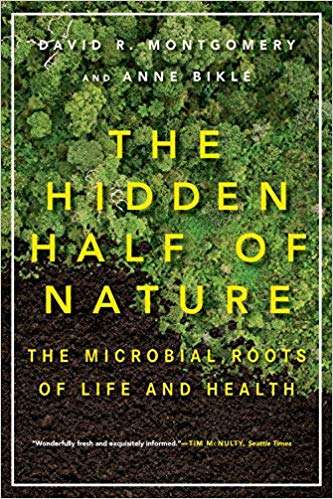
The Hidden Half of Nature is one of the most beautifully written books about microbial life. I’ve read it twice now. If you like nature, gardening, plants, and human health, this book is for you. The authors include so much information about soil health and the interconnectedness of human health to the soil. The parallels they draw provide a holistic explanation of the necessity of microorganisms for the health of our entire world.
“Prepare to set aside what you think you know about yourself and microbes. The Hidden Half of Nature reveals why good health―for people and for plants―depends on Earth’s smallest creatures. Restoring life to their barren yard and recovering from a health crisis, David R. Montgomery and Anne Biklé discover astounding parallels between the botanical world and our own bodies. From garden to the gut, they show why cultivating beneficial microbiomes is key to transforming agriculture and medicine.”
A biologist and a professor of geomorphology wrote this book. I adore how this book connects the similarities between microbial ecology in nature and microbial ecology within our bodies. If you’re interested in a big picture view of microbiomes, give this one a read.
6. March of the Microbes
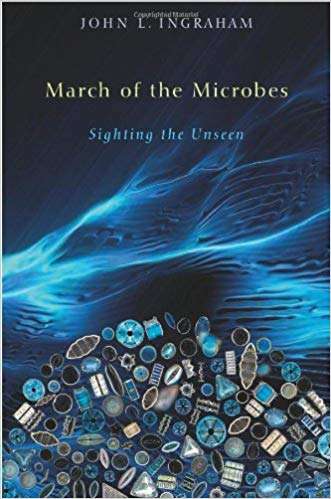
I adore this book. It was one of the very first gifts Jon gave me when we started dating. It’s a classic, in my opinion. March of the Microbes is the first microbiology book that I read just for fun, and I enjoyed it so much. It covers microbes in humans, food, drink, and nature.
A quote about the book:
“Though nothing in the natural world would be quite the same without them, microbes go mostly unnoticed. They are the tiny, mighty force behind the pop in Champagne and the holes in Swiss cheese, the granite walls of Yosemite and the white cliffs of Dover, the workings of snowmaking machines, Botox, and gunpowder; and yet we tend to regard them as peripheral, disease-causing, food-spoiling troublemakers. In this book, renowned microbiologist John Ingraham rescues these supremely important and ubiquitous microorganisms from their unwonted obscurity by showing us how we can, in fact, see them―and appreciate their vast and varied role in nature and our lives.
Though we might not be able to see microbes firsthand, the consequences of their activities are readily apparent to our unaided senses. March of the Microbes shows us how to examine, study, and appreciate microbes in the manner of a birdwatcher, by making sightings of microbial activities and thereby identifying particular microbes and understanding what they do and how they do it. The sightings are as different as a smelly rock cod, a bottle of Chateau d’Yquem, a moment in the Salem witch trials, and white clouds over the ocean. Together they summarize the impact of microbes on our planet, its atmosphere, geology, weather, and other organisms including ourselves, to whom they dole out fatal illnesses and vital nutrients alike.
In the end, Ingraham leaves us marveling at the power and persistence of microbes on our planet and gives credence to Louis Pasteur’s famous assertion that “microbes will have the last word.””
7. Kiss The Ground (this is not a book, but a must-watch documentary)
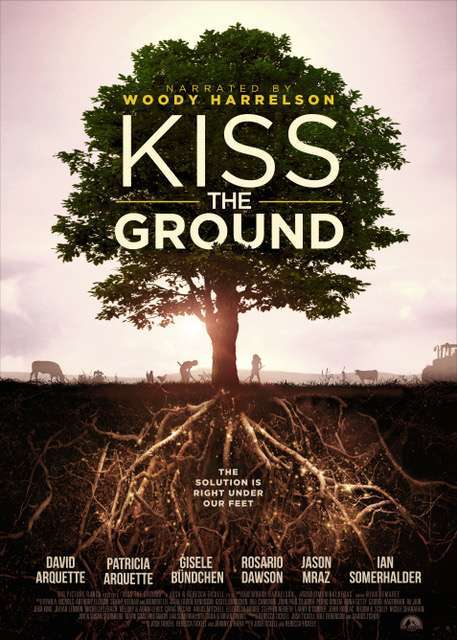
Gut health and overall health result from balance and fueling your body with real, quality food grown in regenerative ecosystems. Plants should not come coated with pesticides from mono-crop fields. Milk should come only from happy cows grazing in the sun, and meat should only come from animals that thrive in their natural regenerative ecosystems. Finally, we should eat foods that are preserved naturally with microbes.
Nourishing food is not meant to be sterile, polluted with chemicals, bad for our planet, cheap, quick, and convenient.
Good food takes time. It takes time to grow, time to gather, time to prepare. With the internet at our fingertips, it’s easier than ever to know where your food comes from, how it’s made, who makes it, and its impact.
The microbial ecology of our bodies and Earth’s soils that make our lives possible are sacred and can be restored through our food choices.
I HIGHLY suggest watching the documentary Kiss the Ground on Netflix to gain a holistic view of the importance of deciding where your food originates.
8. Cooked (documentary or book)
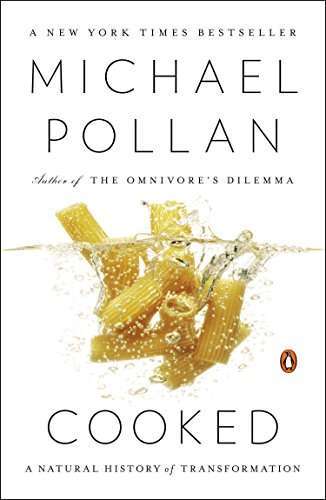
If you are looking for a healthy gut cookbook or a weight loss diet book for gut health, there isn’t one I particularly recommend. One size fits all gut health diets are a myth. Instead, I highly suggest reading the book Cooked by Michael Polan or watching the documentary on Netflix. Once you read or watch Cooked, you will fall in love with real food. Gut health is not achieved by following a specific restrictive diet. Gut health is achieved by enjoying natural, nourishing, nutrient-dense foods from regenerative and holistic sources.








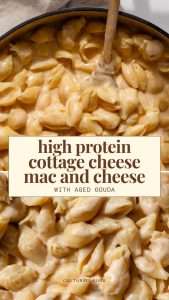


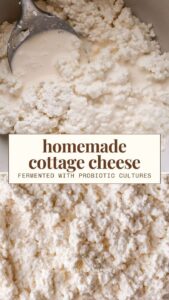

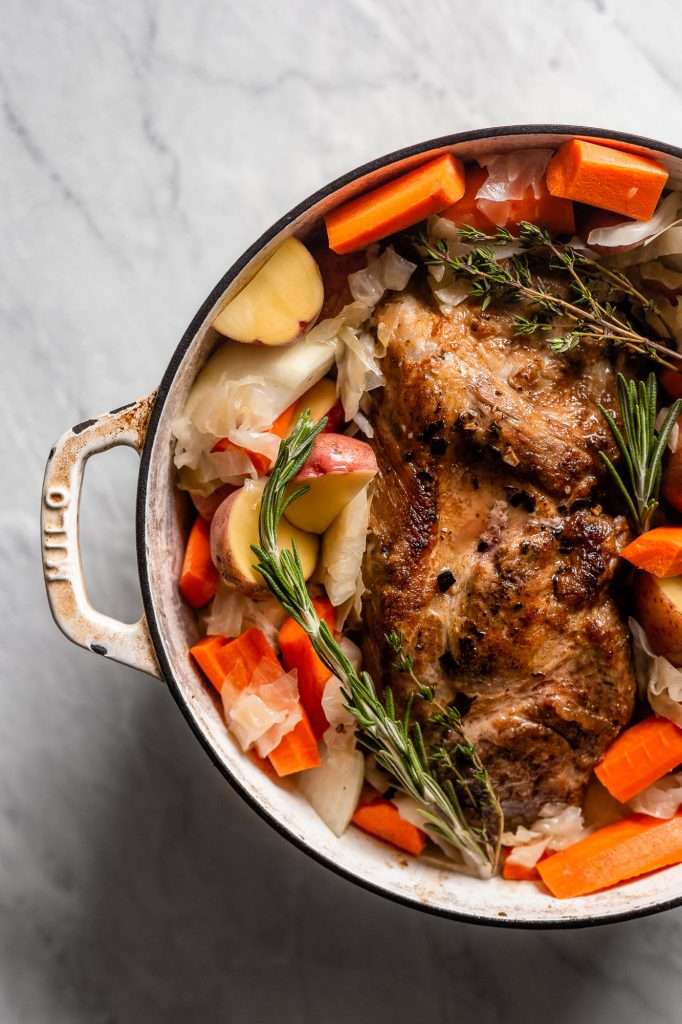
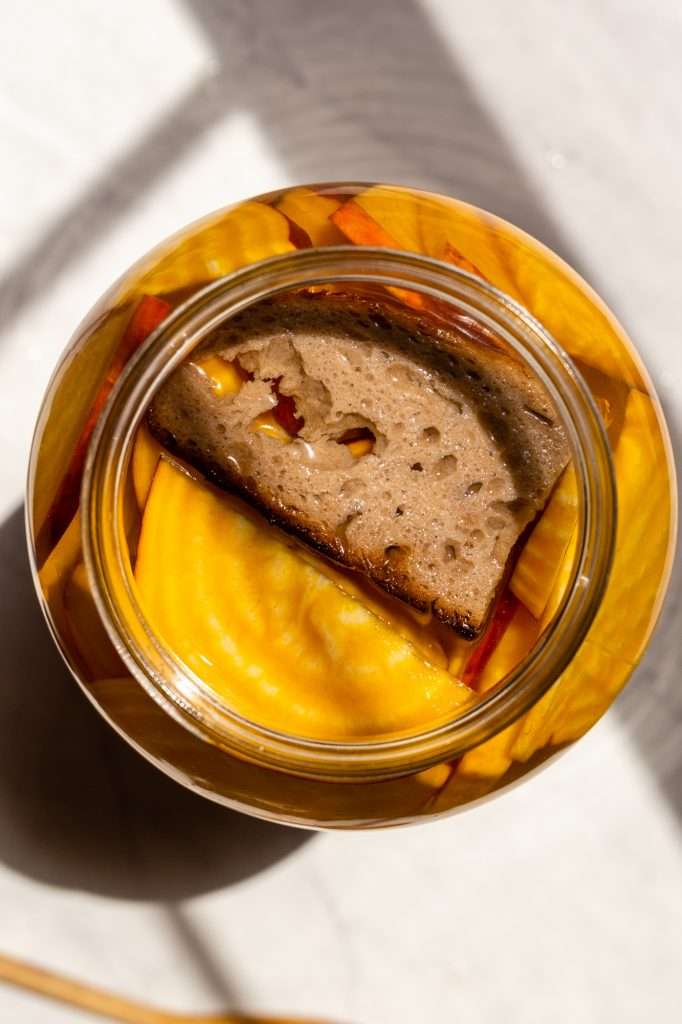

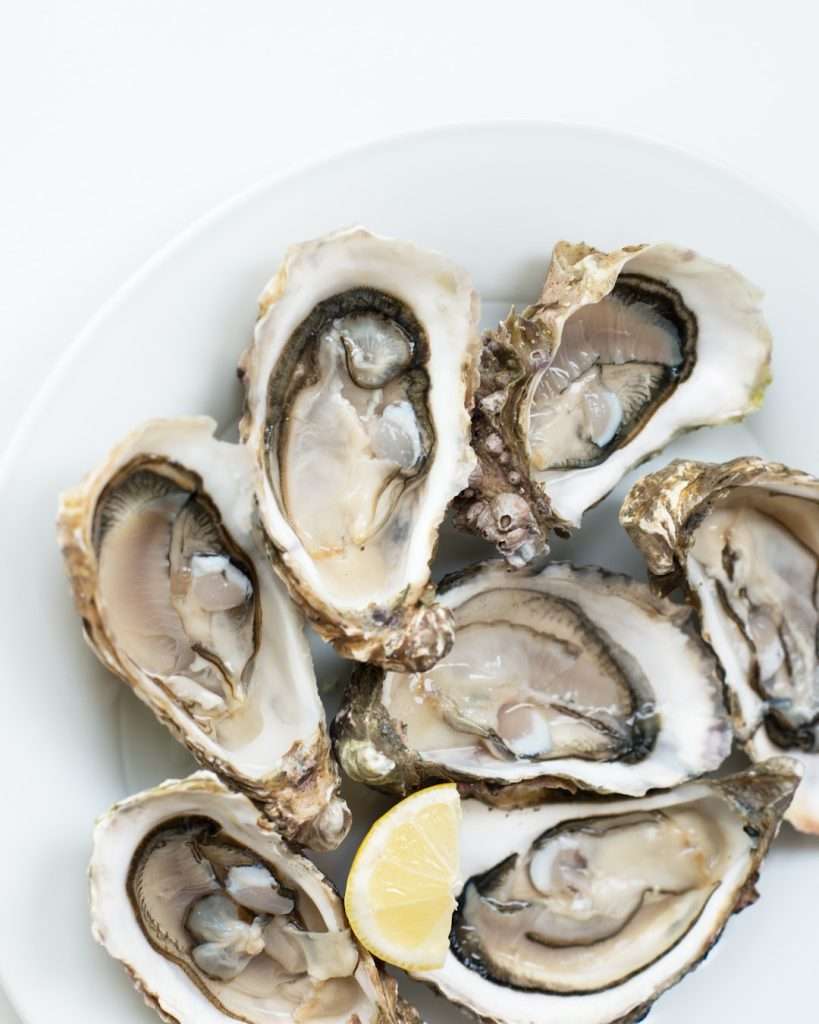


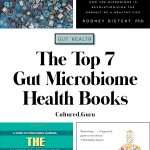
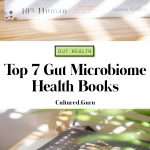

Excellent choice of books!!
Thank you!
Very helpful. Thanks for taking to time to share insights and knowledge.
Mike
I previously read 10% Human, and thought it was a great book. Based on your list I purchased Fiber Fueled and was blown away at how informative, well written and entertaining it is. The author does a fantastic job of talking to the reader/lay person like some guy you just met in a cafe. This does NOT read like a science journal written by doctor. He’s actually very funny in the way he can turn a phrase. Even though I’ve read several microbiome books lately, this was by far the best to date. Cannot recommend it enough!